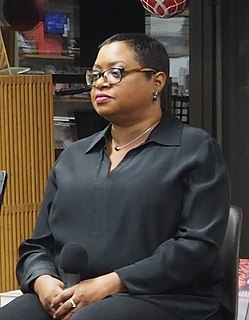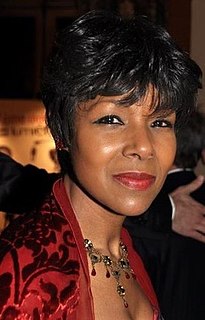A Quote by Yvette Clarke
We must never forget that Black History is American History. The achievements of African Americans have contributed to our nation's greatness.
Related Quotes
Black History is enjoying the life of our ancestors who paved the way for every African-American. No matter what color you are, the history of Blacks affected everyone; that's why we should cherish and respect Black history. Black history changed America and is continuing to change and shape our country. Black history is about everyone coming together to better themselves and America. Black history is being comfortable in your own skin no matter what color you are. Black history makes me proud of where I came from and where I am going in life.
I can't deny that it will be a historic event for an African-American to become president. And should that happen, all Americans should be proud - not just African-Americans, but all Americans - that we have reached this point in our national history where such a thing could happen. It will also not only electrify our country, I think it'll electrify the world.
There's no doubt that when it comes to our treatment of Native Americans as well as other persons of color in this country, we've got some very sad and difficult things to account for. I personally would want to see our tragic history, or the tragic elements of our history, acknowledged. I consistently believe that when it comes to whether it's Native Americans or African-American issues or reparations, the most important thing for the U.S. government to do is not just offer words, but offer deeds.
I'm one of those persons who think that watching black people suffer is not an idea of entertainment. I know a lot about African American history, which is just American history, it's always been very fascinating to me. The premise of the play is remembering and honoring those persons whose stories would never be taken into account.
When African-Americans come to France, the French show them more consideration than they would show an African or a Black Caribbean. When African-Americans come to France, the French people are like, 'Oh, wow. Oh my God.' But if it's an African, they're like, 'Whatever.' It's all because of the past, because of our history.
That happens to a lot of couples. I understand the black history in this country, and regret it, I wish it hadn't happened. See, I also know that it hasn't happened to African-Americans alive today. There isn't one African-American alive today who's treated as three-fifths of a person like it was in the past.


































